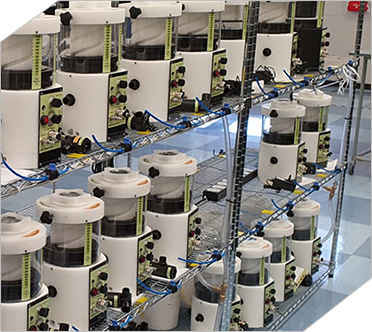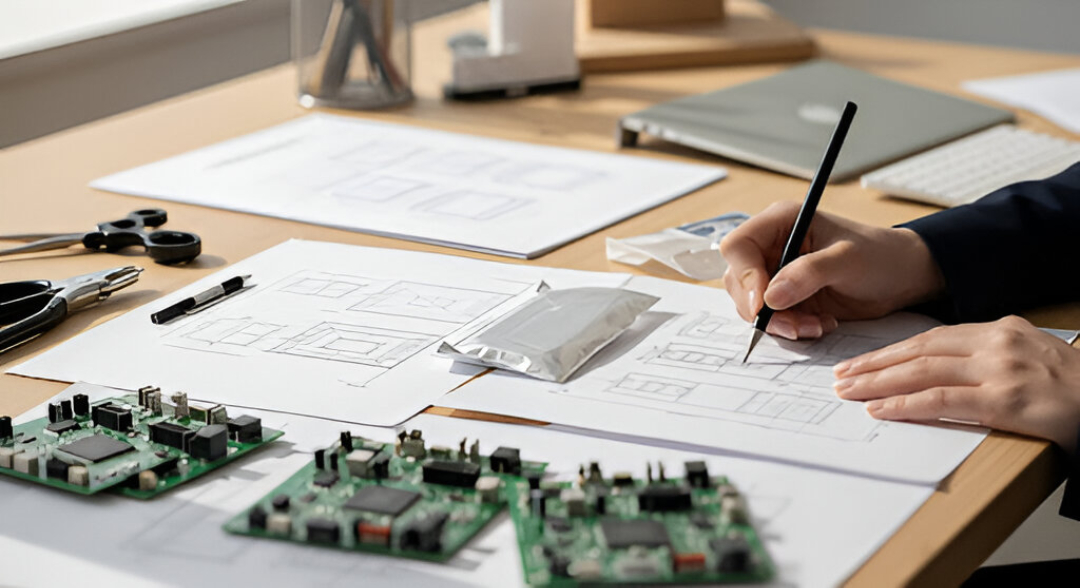Solution Spotlight
Customer
Solutions
- Manufacturing
- |
- Supply Chain Solutions
Product
Markets
- Healthcare / Life Sciences
From prototype to finished product in 10 days
Faced with the COVID-19 pandemic, the UK Government made an appeal to UK manufacturers to increase the number of ventilators available within the NHS (National Health Service). See how Plexus rose to the challenge and used our experience in bringing medical devices to market to establish a manufacturing process and supply chain that enabled ventilators to be built and delivered in only 2 weeks.
Answering the call to support the fight against COVID-19
On 13th March 2020, the UK Government made an appeal to UK manufacturers as they identified a need for 30,000 additional ventilators in support of the NHS and their fight against COVID-19. Plexus immediately offered its expertise in support of this “Ventilator Challenge”. Our experience in bringing product to market through our partnership approach with leading medical device manufacturers, coupled with our expertise in highly complex medical device design and manufacturing, ensured that Plexus was uniquely qualified to support this effort. Our capabilities were recognized by the UK Cabinet Office and we were asked to participate in three separate ventilator programs. In one of these programs, Plexus partnered with Diamedica to upscale the manufacturing of its Helix Adult/Paediatric Portable ventilator (HAPP ventilator). Within 24 hours of Plexus’ pledge to support this effort, agreements were in place and a bill of materials was received for Plexus to begin evaluating.


Rapidly engineering a manufacturing process aligned to demanding regulatory requirements
Within three days, Plexus’ manufacturing engineering team in Kelso, Scotland received, deconstructed and reconstructed a HAPP ventilator. This rapid evaluation enabled Plexus to quickly create assembly build instructions for the manufacturing process. From this, an efficient manufacturing process was developed and the wider Plexus manufacturing team was trained to support production build efforts. With lives depending on these products, zero defects in the product was crucial. In parallel to the manufacturing process development, test circuits were also developed and soak tests were established. Soak testing involved switching the ventilator on and leaving it running for an 8 hour period, then completing a repeat of the initial testing to confirm there was no impact to product performance. We aggressively deployed proven transition tools and processes throughout the project to maintain progress, including 5 daily stand-up meetings with both internal and external stakeholders to ensure the project remained on track. Transparent management reporting, at all levels, highlighted key achievements for the day and defined next steps. A multi-party governance and leadership team was rapidly mobilized between Plexus and the Government, meeting 3 times daily and culminating in an evening briefing to UK Government Ministers.
Maintaining a focus on regulatory requirements was critical. According to the European framework, ventilators are a Class IIb medical device, the second highest regulatory classification. Patients literally rely on devices like these to keep them alive. Therefore, even though our teams were operating at an accelerated pace, zero defects in the manufacturing process was essential.
Collaboration and problem solving were the key elements to success
The team faced significant challenges in preparing for volume production. The Plexus Supply Chain, Transition Management, Legal, Quality, Design and Manufacturing Engineering teams worked collaboratively with our suppliers and our logistics teams to resolve the constraints of a rapid ramp to production.
Due to global surge in ventilator production, our Supply Chain team overcame a number of challenges as they established a supply of materials that would keep the project on track. Faced with shortages for multiple parts, the team leveraged innovative thinking and problem solving to identify alternative parts and possible sources. A number of alternative parts, including a power supply, required in-depth quality and performance verification prior to being approved. Due to strong existing relationships, our suppliers worked in partnership with us and, in many cases, went above and beyond to ensure we could meet key project milestones.
The test engineering team worked to implement additional functional tests to ensure compliance to the demanding regulatory requirements. Plexus’ Transition Management, Quality Assurance and Regulatory teams rose to the challenge of creating significant content for a new technical file, something that was not in the original scope of work. This was required to support device approval for use as the project had evolved from manufacturing under Diamedica’s existing CE marking and product registration, to manufacturing directly for the UK Government under the RMVS (Rapidly Manufactured Ventilator System) program using the “Exceptional use of non-CE marked medical devices” approval by the MHRA (Medicines and Healthcare products Regulatory Agency).
The Plexus production team in Kelso adapted well to the changing environment. To support the rapid schedule, while also ensure our team was safe and able to adequately socially distance, multiple changes in shift patterns were required to accommodate the COVID-19 environment and keep our employees safe.
The team leveraged innovative thinking and problem solving to identify alternative parts and possible sources.
The first build was completed only 10 days after receiving the bill of materials.
Stretching the limits of what is possible
A program like this typically ramps over several months. However, the Plexus team was dedicated to answer the call presented through this challenge and to support the fight against COVID-19. The team worked around the clock in order to have product ready to ship in record time – the first build completed only 10 days after receiving the bill of materials. Even more impressive was the resolve of the team and their ability to accomplish this against a backdrop of social distancing, which made normal work practices more challenging.

As the care path for COVID-19 evolved, it became evident that alternative ventilators were more suited for treating COVID-19 patients. As such, the need to obtain an emergency use authorization for the HAPP Ventilator from the Medicines and Healthcare products Regulatory Agency (MHRA) no longer existed. However, the UK Government has recognized the efforts and skills of the Plexus team and our continued commitment to help create the products that build a better world.
The crisis has stretched the very limits of time for highly complex, regulated products to enter the market. The events in the timeline speak as a testimony to Plexus expertise ingenuity, flexibility and passion to get product to market in a time of need and with exceptional quality.



